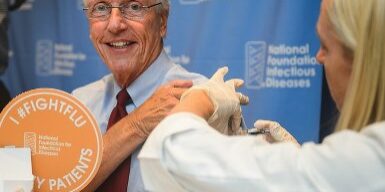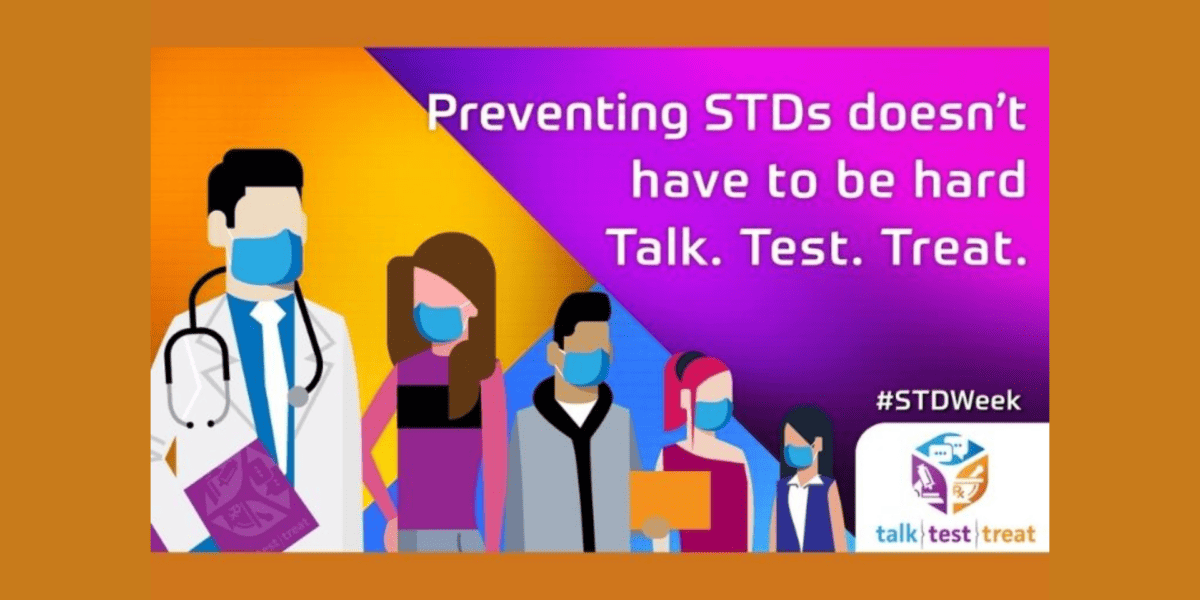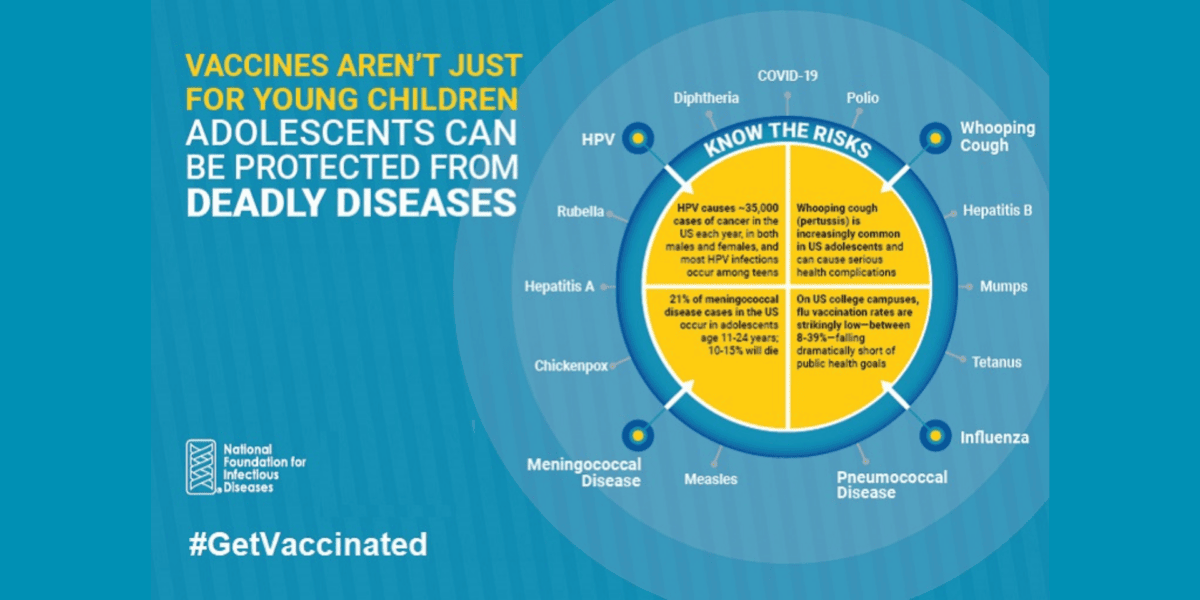
There is still much work to be done to increase adult vaccination rates in the United States to reach public health goals. William Schaffner, MD, NFID immediate past-president, wrote the post below for Infectious Disease News on the importance of every patient medical visit representing an opportunity to vaccinate.
Despite well-documented evidence regarding effectiveness and safety, overall adult vaccination rates in the United States fall short of national public health goals. Efforts to increase vaccine uptake have largely focused on reducing the number of so-called missed opportunities (e.g., patients who visit healthcare providers without being vaccinated). All healthcare professionals, whether in public or private practice, should take advantage of every patient visit to ask about immunization history and provide patients with the recommended vaccines they need or refer them to providers who can offer the vaccines. While this may occur in some practices, I see missed opportunities all the time, particularly in specialty practices.
Whether it is the cardiologist who fails to recommend pneumococcal vaccination for their patient with cardiac disease or a physician in a tuberculosis clinic that doesn’t offer influenza vaccine —opportunities to make sure adults are immunized against vaccine-preventable diseases are being missed.
Paul Etkind, MPH, senior analyst for immunizations at the National Association of County and City Health Officials (NACCHO), said, “[While] it is not unusual for STD clinics to be offering HPV, Hepatitis B and Hepatitis A immunizations to their patients, it is more unusual for TB clinics to routinely offer flu and/or pneumonia vaccinations to their patients.” However, NACCHO supports the concept that rather than having TB clinics administer vaccines themselves, another possibility would be for TB clinic staff to routinely ask patients about their flu and pneumonia immunization histories and prompt the under- or unvaccinated patient to see their primary care provider or local health department to receive the appropriate immunization(s).
The ultimate goal is to have every patient fully immunized, and that includes the entire array of vaccines recommended for adults by the CDC’s Advisory Committee on Immunization Practices: influenza, pneumococcal, Tdap, shingles, hepatitis B, hepatitis A and HPV. Achieving this goal will require the involvement of all healthcare professionals in both private and public health venues. And I challenge you to help meet this public health goal by leaving no opportunity behind.
To join the conversation, follow us on Twitter (@nfidvaccines), like us on Facebook, and join the NFID Linkedin Group.
Related Posts

Protecting Children as They Head Back to School
As school gets underway, experts from the National Foundation for Infectious Diseases (NFID) offer insights on childhood immunization

Lifelong Conversations about Sexual Health
Teen Health Week is April 4-10, 2022, and STD Awareness Week is April 10-16, 2022, both of which provide an opportunity for healthcare professionals to begin lifelong conversations with patients about sexual health and the importance of staying up to date on all recommended vaccines …

Vaccines Are Not Just for Young Children
CDC recommends vaccinations from birth to adulthood to provide a lifetime of protection. Yet many adolescents are not vaccinated as recommended, leaving them unnecessarily vulnerable. International Adolescent Health Week (March 20-26, 2022) is a perfect time to make sure that pre-teens and teens are up to date on all recommended vaccines …
